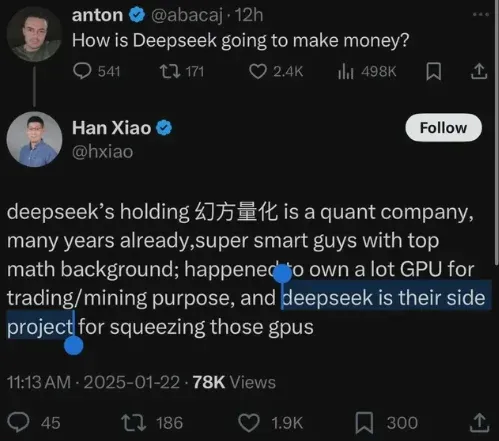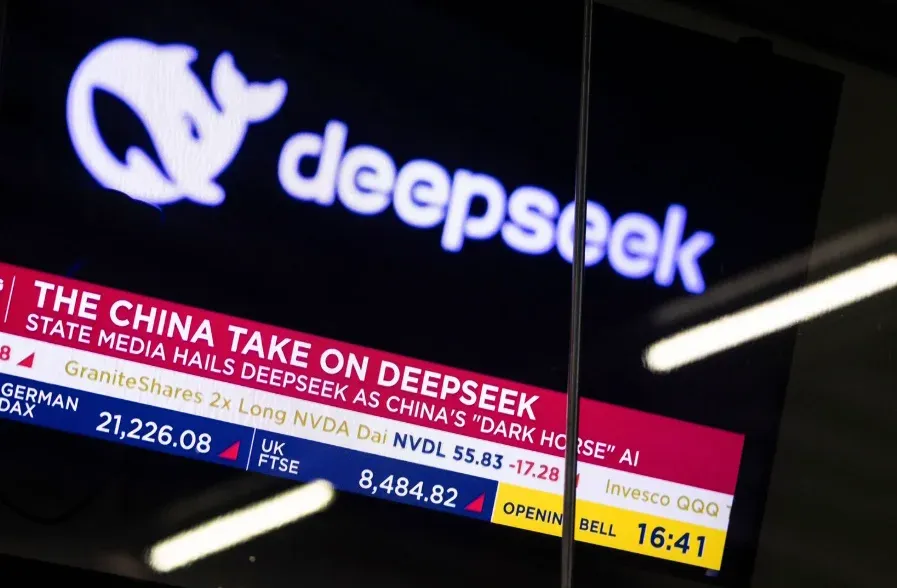Key Points:
- DeepSeek’s rise is shaking the AI world, with its R1 model challenging the likes of OpenAI, offering a cheaper, open-source alternative that’s stealing the spotlight.
- DeepSeek’s success has prompted U.S. companies like Meta and Microsoft to ramp up their AI efforts, fearing they might fall behind in the fast-evolving AI arms race.
- With the AI sector rapidly expanding, the competition between China and the U.S. has never been fiercer, and the stakes are higher than ever in this trillion-dollar industry.
In an unexpected turn of events, DeepSeek, a Chinese AI startup, has made a colossal impact by dethroning OpenAI's ChatGPT from its top spot on the U.S. App Store.
What's even more surprising is the fact that DeepSeek managed to develop R1 despite the U.S. imposing strict export restrictions on China’s access to the latest semiconductor technology.

The success of DeepSeek has caused ripples across the globe. The startup’s rapid rise has forced the tech world to rethink its assumptions about AI development, particularly when it comes to the open-source model.
DeepSeek’s R1 is designed to be accessible to any developer, allowing it to rapidly scale and capture a significant market share.
The AI Arms Race Intensifies
As DeepSeek continues to surge ahead, American tech giants are finding themselves caught in the whirlwind of this rapidly changing landscape. The rise of this Chinese AI company has triggered a sense of urgency among U.S.
Meta, for example, has set up multiple "war rooms" within its generative AI department to address the growing influence of DeepSeek and to strategize ways to maintain its leadership in AI development.
Meta’s reaction is just one example of how deeply the AI arms race has embedded itself into the strategic plans of the world’s tech giants.
- Satya Nadella of Microsoft and Yann LeCun of Meta have acknowledged that DeepSeek’s open-source approach is reshaping the AI landscape.
- LeCun emphasized the power of open-source research, highlighting how DeepSeek leveraged Meta’s Llama models and built new ideas on top of them.
- In response to growing competition from China, the U.S. is bolstering its AI infrastructure through initiatives like President Trump’s Stargate project.
- The Stargate project is a multi-billion-dollar venture backed by major players like OpenAI, Oracle, and SoftBank.
- The project aims to secure up to $500 billion in investments over the next four years, reinforcing America's commitment to advancing AI technology and maintaining its competitive edge.
This is just one part of a larger strategy to safeguard U.S. interests in the face of the escalating AI arms race, particularly as China continues to make significant strides in this critical field.
A Changing Landscape

DeepSeek operates within the world of AI and trading by utilizing advanced machine learning models, designed to analyze and predict market trends.
The company, originally a side project born from the AI-focused hedge fund High-Flyer, blends cutting-edge technology with financial expertise to provide trading insights.
The shift toward more accessible AI could lead to a democratization of the technology, making it available to a broader range of developers and companies.
The outcome of this battle is yet to be seen, but one thing is clear: the AI arms race is far from over. With billions of dollars at stake and the future of technology on the line, the stakes have never been higher.
Whether it’s DeepSeek, OpenAI, or any of the other players in this rapidly evolving field, the race to define the future of AI is one that will have lasting effects on industries, economies, and societies around the world.







